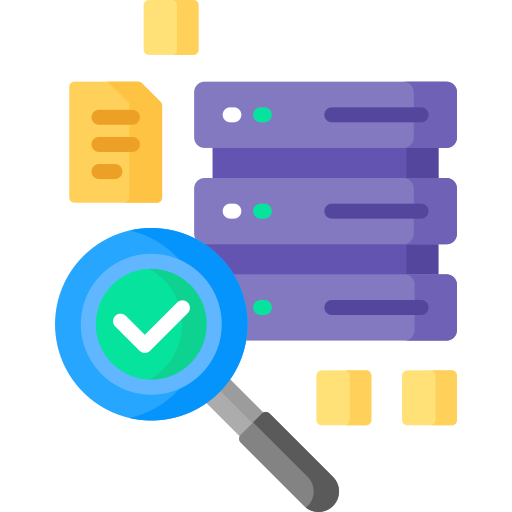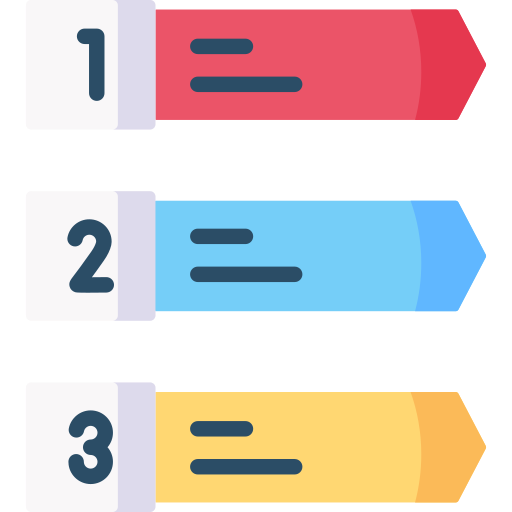Can Google access all the information and pages on my site?
SEO Technical Audit
Improve Crawlability and Indexing
Our technical SEO audit finds technical issues that may hinder search engines when they attempt to completely crawl and index the content on your website. This includes, but in no way is limited to problems like broken links, robots.txt blocking, redirect loops and sitemap errors. By identifying and fixing these errors, you assist search engines so that they can access and understand (categorise) your website, making it more likely to appear in search results.
Our technical SEO audits focus on factors that create or hinder a positive user experience. This includes things like a fast loading speed, mobile-friendliness, and a clear, logical website structure. Search engines prioritize webpages that offer a good user experience (Google mentions this constantly) and a technically sound website is more likely to keep users engaged and reduce overall bounce rates, which can positively impact your ranking.
Stronger On-Page Optimization
Even though On-Page optimization is its own beast, and not directly part of a technical SEO audit, a comprehensive analysis can reveal areas for improvement in on-page SEO. This might include missing meta descriptions, improper title tag usage, multiple H1's etc, or a lack of internal linking. Addressing these issues can improve the relevance and clarity of your website's content for search engines, boosting your ranking potential.
Better Mobile Optimization
If you have GSC set up, you will see that most searches now happen on a mobile device. Ergo a mobile-friendly website is crucial. A technical SEO audit will identify any mobile usability issues like unresponsive design or slow loading times on mobile devices. Addressing these issues ensures your website delivers a great experience for mobile users, which is (or seems to be) a significant ranking factor for Google.
Authority and Trustworthiness Signals
Technical SEO audits can help identify and fix security issues like broken SSL certificates. A secure website demonstrates trustworthiness to search engines and users alike. Additionally, a logical and well-structured website with clear navigation and high-quality content can indirectly signal authority to search engines, potentially improving your ranking.
By identifying and fixing technical SEO issues, you create a website that is healthy and functions as designed. Search engines use various algorithms to assess website health, and a technically sound website is generally considered more favorable, potentially giving you a ranking boost.
Remember, a technical SEO audit is just one piece of the puzzle for achieving high rankings in SERPs. Content quality, relevance, and backlink profile are still critical factors. However, a technical SEO audit provides a strong foundation for search engine optimization by ensuring your website is technically sound and user-friendly, setting the stage for long-term SEO success.
Is your content optimized to provide the correct answer to the questions searchers are asking?
On-Page Content Audit
Improved Content Relevance and Clarity
Our On-Page audit identifies areas where your content might not be well-aligned with user search intent or relevant keywords. It can help you optimize titles, meta descriptions, and headings to better reflect the content's theme and target specific keywords. This improves the chances of your website appearing in searches related to those keywords.
Our audit analyzes factors that affect user experience, such as content structure, readability, and internal linking. It can reveal opportunities to improve the flow of information, break up large text blocks with visuals, and ensure clear calls to action. Engaging content keeps users on your website for longer, which is a positive signal for search engines.
Stronger On-Page Optimization
The audit goes beyond keywords to identify missing elements crucial for on-page SEO. This might include internal linking inconsistencies, improper image optimization with missing alt tags, or a lack of schema markup for rich snippets. Addressing these issues helps search engines understand your content better and potentially improves organic click-through rates (CTR).
Content Quality Evaluation
While not a strict SEO factor, the audit can reveal areas where content might be outdated, thin (lacking depth), or lacking value compared to competitors. This allows you to prioritize content updates, add fresh information, and ensure your content is truly informative and valuable to users. High-quality content can indirectly improve rankings by attracting backlinks and encouraging user engagement.
Identification of Content Gaps
An audit can reveal missing content opportunities based on your target audience and industry. This might involve identifying relevant topics users are searching for but your website doesn't address. By creating content to fill these gaps, you expand your website's coverage of relevant themes and attract potential customers searching for specific information.
The audit findings can guide the development of a comprehensive content strategy. It helps you prioritize content updates, identify opportunities for new content creation, and ensure your content aligns with your overall SEO goals. A well-defined content strategy keeps your website fresh, relevant, and user-friendly, all factors contributing to higher search engine rankings.
Remember, on-page content optimization is an ongoing process. A regular SEO On-Page Content Audit allows you to stay ahead of the curve, continuously improve your content's relevance and user experience, and ultimately climb the SERP ladder for your target keywords.
What kind of back-links are we up against? (How hard do we need to fight in order to win)
Off-Page SEO Audit
Backlink Profile Analysis
A core aspect of off-page SEO, backlinks are links from other websites pointing to yours. An audit analyzes your backlink profile, identifying the number, quality, and source of these backlinks. It can reveal broken links, low-quality backlinks from spammy websites, and opportunities to acquire high-quality backlinks from relevant and authoritative websites. A strong backlink profile is a crucial trust signal for search engines, and the audit helps you identify areas for improvement.
Brand Mentions and Online Reputation
The audit goes beyond backlinks to assess your brand mentions and online reputation. This includes analyzing online reviews, social media mentions, and news articles mentioning your brand. A positive online reputation with credible mentions can indirectly boost your search engine ranking, as search engines consider a well-regarded brand more trustworthy. We may not be able to make you look good, but we will try to find all the places that are making you look bad.
Competitive Link Building Strategies
The audit analyzes your competitors' backlink profiles to identify websites linking to them but not yours. This helps you develop targeted link-building strategies aimed at acquiring backlinks from high-quality sources your competitors have already tapped into.
While not a direct ranking factor, social media plays a role in SEO. The audit can assess your social media presence, identifying opportunities to increase engagement and brand awareness. A strong social media presence can drive more traffic to your website, which can indirectly improve search engine ranking.
Disavowing Spammy Backlinks
The audit can identify low-quality or spammy backlinks that could potentially harm your website's ranking. It can guide you on how to disavow these links with Google, ensuring your backlink profile remains clean and trustworthy.
Overall Off-Page SEO Strategy
The audit findings can help you develop a comprehensive off-page SEO strategy. This strategy might involve guest blogging on relevant websites, engaging in online communities, and building relationships with industry influencers to acquire high-quality backlinks and improve your online reputation.
Remember, off-page SEO is a long-term game. An SEO Off-Page Audit provides valuable insights to build a strong backlink profile, enhance your online reputation, and develop a targeted link-building strategy. These efforts, combined with high-quality content and a solid on-page foundation, contribute significantly to climbing the SERP ladder and achieving lasting organic search success.




